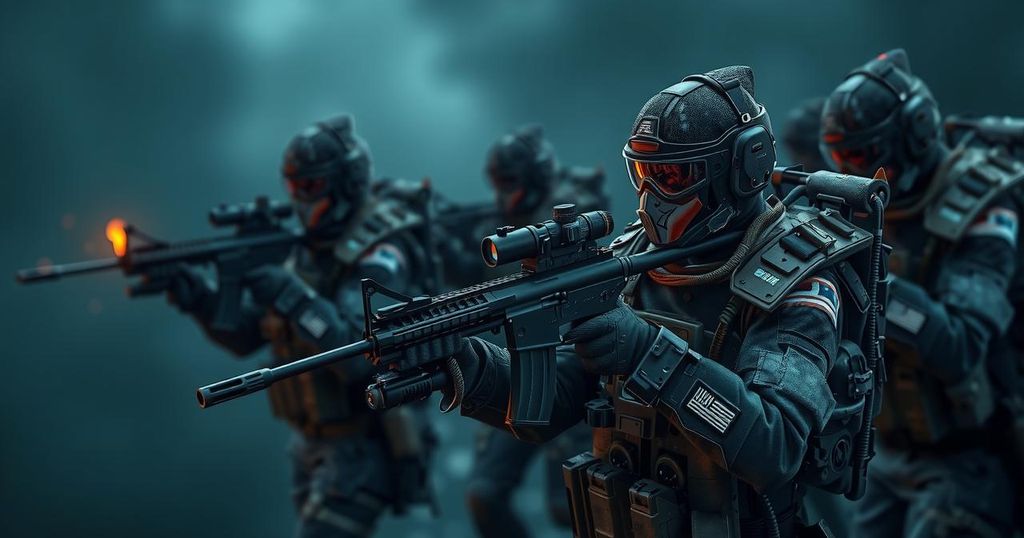Future Prospects of the Wagner Group After Failed Rebellion in Russia

The Wagner Group faces an uncertain future following a failed rebellion against Russian military authority. While some fighters are expected to follow leader Yevgeny Prigozhin to Belarus, many may resist integrating into the official military due to low pay. Experts believe operations will likely continue, particularly in Africa, albeit possibly under a new identity. Prigozhin’s fate and control remain ambiguous, with various paramilitary organizations in Russia poised to fill any void left by Wagner’s reorganization.
The Wagner Group, after a failed armed rebellion against the Russian military, finds its future uncertain yet promising. Within just 36 hours of the uprising, an agreement led to leader Yevgeny Prigozhin seeking refuge in Belarus, while approximately 1,000 of his fighters reportedly opted to follow him there. Experts suggest the group’s mercenary operations will not cease, with many fighters likely to continue their activities in various global regions, particularly Africa. Russian President Vladimir Putin has indicated Wagner fighters could integrate into the official military, follow their leader, or return home, but many may resist due to inadequate financial compensation compared to private paramilitary wages. Some mercenaries remain in Russia, indicating internal division following the rebellion.
The group’s activity, including operations in Libya and Syria, may lead to a rebranding as Wagner seeks continuity without Prigozhin. The future of Prigozhin himself is uncertain, although reports suggest he may retain control over Wagner’s operations in Africa despite pressure from the Kremlin. With numerous paramilitary organizations in Russia, the Wagner Group’s identity could easily adapt, continuing its existence under new leadership or a different guise.
Overall, while the Wagner Group’s immediate status seems precarious, its network and operational capacity appear resilient, suggesting that its influence may persist in various international arenas despite recent internal upheavals.
The Wagner Group, a private paramilitary organization previously led by Yevgeny Prigozhin, has played a significant role in global conflicts, particularly in Eastern Europe and Africa. Following a short-lived rebellion against the Russian military command, the group faces a critical period of reorganization. Russian authorities are currently deciding how to manage both its fighters and leadership amid internal and external pressures. Analysts foresee varying outcomes, including continued mobilization of its forces, possible integration into the Russian military, or a transition to a new operational identity, especially in conflict zones like Africa, where the group has established a foothold.
In summary, the Wagner Group’s fate following its failed rebellion remains complex and multifaceted. While there is potential for a reshuffling and rebranding of its operations, the financial motivations of its members may lead many to seek alternative paths if integration into the Russian military does not prove lucrative. Given the presence of numerous other paramilitary factions, the Wagner Group’s influence and operations may very well continue, albeit under new leadership or restructuring. Prigozhin’s future remains uncertain, but collective organizational resilience suggests the group’s legacy will endure regardless of individual leadership changes.
Original Source: telegrafi.com






